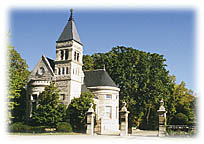
Then another angel with a gold incense burner came and stood at the altar. And a great amount of incense was given to him to mix with the prayers of God’s people as an offering on the gold altar before the throne. The smoke of the incense, mixed with the prayers of God’s holy people, ascended up to God from the altar where the angel had poured them out.
Rev. 8:3–4 NLT
Revival hunger is wanting God’s presence more than sleep, desiring God’s face more than food, hungering for God’s holiness more than our comfort, and pursuing God’s glory more than our daily routine. Revival hunger yearns for God above all others, removes idols of the heart, glorifies God in public worship, mortifies sins of the flesh (i.e., sin nature), renews commitment to God’s covenant promise, and more importantly, humbles oneself under God’s mighty hand (2 Chron. 7:14). Revival hunger yearns for God more than self-exaltation, self-concern, and self-fulfillment.
Revival hunger is a good thing, but it can become a bad thing if our desire for revival causes us to become impatient with God and doubt his willingness, timing, and provision. Though we are called to participate in preparing for revival, ultimately God’s timing for revival is his sovereign choice. Even if a revival is delayed, not a single prayer for revival has gone wasted or ignored.
This thing becomes an obsession. For fifty years I’ve wept, and I’ve prayed and I’ve groaned, and I’ve read, and I’ve fasted, and I’ve met with guys for nights of prayer, and days of prayer and days and days of prayer, for revival.
There is not much sign of it. Well, are you sure? You see, prayers never die. What are these: the prayers of the saints (Rev. 8:3). You never pray a prayer born of God without it being on record with God. God never wastes anything. Do you think you and I have prayers born of grief, born of anguish, born of desire to see an overthrow of iniquity (for after all that is what revival is), and you think God will let them die?”
Leonard Ravenhill, Revival Study Bible, note on Rev. 8:3








